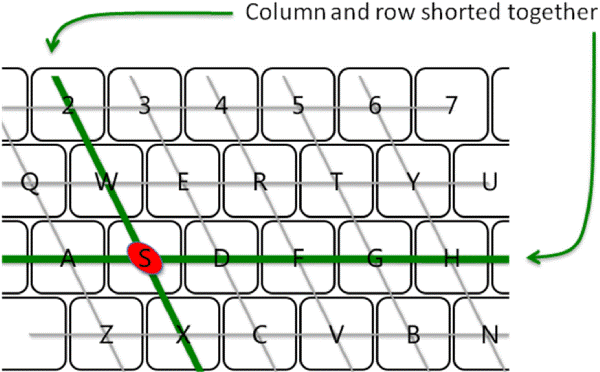public class Testing extends JPanel{
public void Action() {
Timer t = new Timer();
t.schedule(new TimerTask() {
public void run() {
if(move2==true) {
switch(direction2) {
case 1 : x-=2;
break;
case 2 : x+=2;
break;
case 3 : y-=2;
break;
case 4 : y+=2;
}
}
repaint();
}
}, 10, 20);
}
public void paint(Graphics g)
{
g.clearRect(0, 0, 526, 690);
g.drawLine(x, y, x, y-30);
g.drawLine(x+1, y, x+1, y-30);
g.drawLine(x-1, y, x-1, y-30);
}
static boolean move2 = false;
static int x = 200;
static int y = 100;
static int direction2 = 0;
public static void main(String[] args) {
JFrame f = new JFrame();
Testing t = new Testing();
f.setVisible(true);
f.setSize(526,690);
f.setDefaultCloseOperation(JFrame.EXIT_ON_CLOSE);
f.setLocationRelativeTo(null);
f.setFocusable(true);
f.add(t);
t.Action();
f.addKeyListener(new KeyListener() {
public void keyTyped(KeyEvent e) {
}
public void keyPressed(KeyEvent e) {
System.out.println("did");
switch(e.getKeyCode()) {
case KeyEvent.VK_A:
move2 = true;
direction2 = 1;
break;
case KeyEvent.VK_D:
move2 = true;
direction2 = 2;
break;
case KeyEvent.VK_W:
move2 = true;
direction2 = 3;
break;
case KeyEvent.VK_S:
move2 = true;
direction2 = 4;
break;
}
}
public void keyReleased(KeyEvent e) {
switch(e.getKeyCode()){
case KeyEvent.VK_A:move2 = false;
break;
case KeyEvent.VK_D:move2=false;
break;
case KeyEvent.VK_W:move2=false;
break;
case KeyEvent.VK_S:move2=false;
}
}
});
}
}
\$\begingroup\$
\$\endgroup\$
Add a comment
|
1 Answer
\$\begingroup\$
\$\endgroup\$
The problem is not your code it is rather your Keyboard...
...most modern keyboards don't support enough key presses, aka as N-Key-Rollover (http://blog.controlspace.org/2010/08/n-key-rollover-what-it-is-and-how-to.html) so your event are 'swallowed'
N-key rollover relates to the ability of a keyboard to correctly recognize multiple key presses at once (in the case, the ability to press as many keys as you want)...

